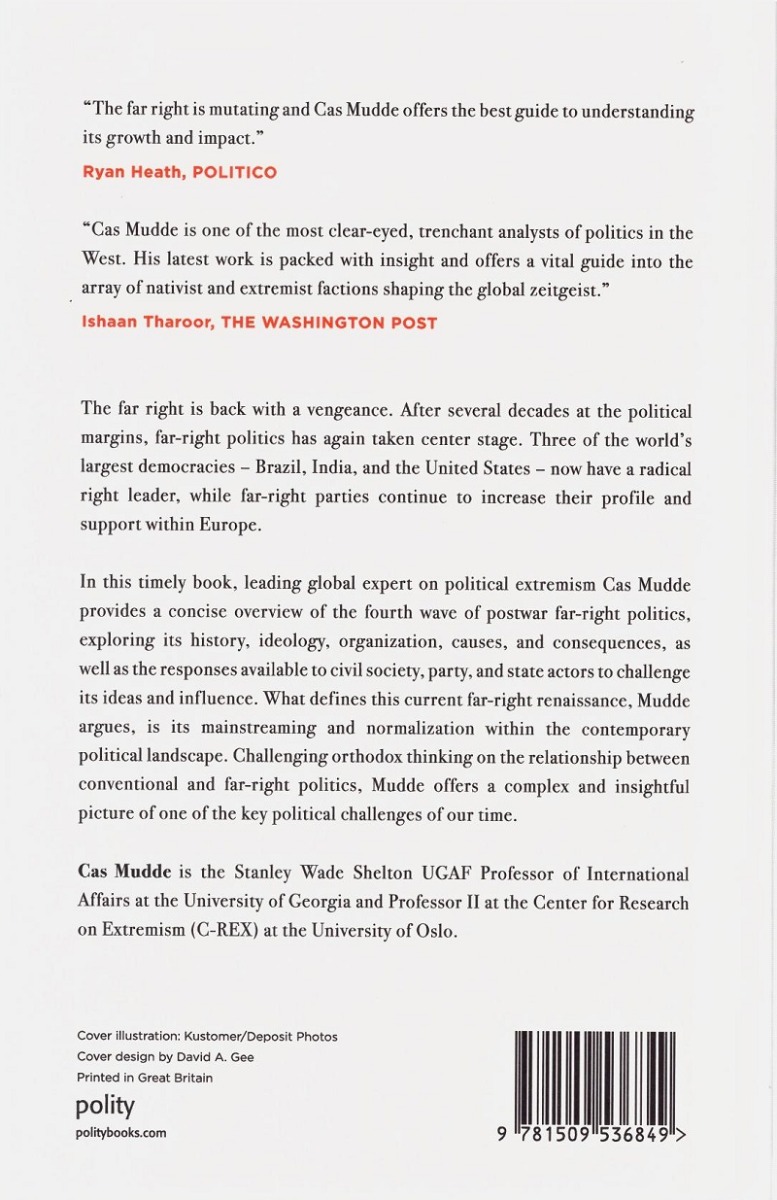Far right today
The far right is back with a vengeance. After several decades at the political margins, far-right politics has again taken center stage. Three of the world’s largest democracies – Brazil, India, and the United States – now have a radical right leader, while far-right parties continue to increase their profile and support within Europe.
Far right today In this timely book, leading global expert on political extremism Cas Mudde provides a concise overview of the fourth wave of postwar far-right politics, exploring its history, ideology, organization, causes, and consequences, as well as the responses available to civil society, party, and state actors to challenge its ideas and influence. What defines this current far-right renaissance, Mudde argues, is its mainstreaming and normalization within the contemporary political landscape. Challenging orthodox thinking on the relationship between conventional and far-right politics, Mudde offers a complex and insightful picture of one of the key political challenges of our time.
ELIF SHAFAK
https://ammonralibreria.com/categoria/editor/polity-press/
Acknowledgements
Abbreviations
Introduction
1. History
2. Ideology and Issues
3. Organization
4. People
5. Activities
6. Causes
7. Consequences
8. Responses
9. Gender
10. Twelve Theses on the Fourth Wave
Notes
Chronology
Glossary
Further Readings
Arthur Shopenhauer (Danzig 1788-Francfort, 1860). Filósofo alemán. Identificó la realidad en sí con la voluntad como energía que da vida al mundo. Se matriculó en la Universidad de Gotinga como alumno en la Facultad de Medicina (1809), estudios que dejó dos años después para ingresar en la Facultad de Filosofía. En 1811 marchó a la Universidad de Berlín, donde asistió a las clases de Fichte y de Schleiermacher. En 1820 se incorporó a la Universidad de Berlín como profesor. Su filosofía está influida por Platón, Kant, el pensamiento hindú y el budismo. Su obra más importante fue » El mundo como voluntad y representación » (1818). Para Schopenhauer el querer supone insatisfación y, por tanto, la voluntad representa el origen del dolor y del mal. Esta visión hizo que su pensamiento fuera calificado de pesimista. Otras obras suyas son » De la cuadrúple raíz del principio de razón suficiente » (1813), » Sobre la voluntad en la naturaleza » (1836), » Dos problemas fundamentales de la moral » (1841) y » Parerga y Paralipomena » (1851).









